by Ngo Tu Thanh (Frank Tu)
In July 2022, I finally made it to Fukuoka after 9 years! This is my first visit to Kyūshū since my time as a high school senior in Yame-shi – a small rural city in Fukuoka Prefecture. Needless to say, I was overjoyed to be back or as they say in Japanese: “dokidoki-kan, wakuwaku-kan hanpanai”. The excitement does not only come from the fact that I can reunite with my host family, high school friends and teachers after such a long time. But it also stems from the main reason why I am here: to research Fukuoka’s regional revitalization policies. During my two-month stay here, I will be mainly based in Fukuoka City to interview officials at the Fukuoka prefectural government, as well as in Buzen City to meet municipal officials.
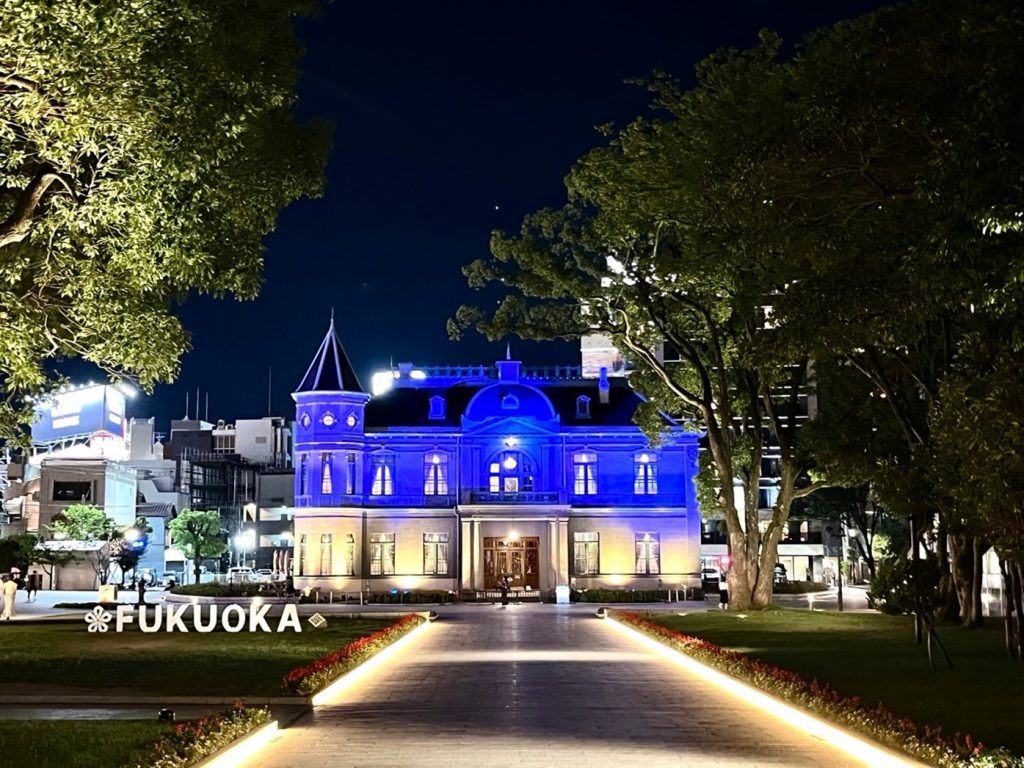
Copyright © Ngo Tu Thanh 2022
“Humidity”, “beachy”, “hospitality”, “energy”, “positivity”, “touristy”, and “gastronomy” are the words I would use to describe my stay in Fukuoka so far. Facing the sea on three sides, Fukuoka Prefecture is home to many beautiful beaches, many of which are accessible by public transport. In the summer, Fukuoka is humid and hot, similar to most other parts of Japan. However, the salty sea breezes here gives a very different feeling from other cities such as Tokyo. Fukuoka’s beaches are also hotspots for small businesses such as bars, restaurants, diving, surfing and swimming courses. Personally, I often went swimming in Momochi beach (Fukuoka City) after work and “contributed to Fukuoka’s economy” by getting a fresh cocktail. Yet, I kept wondering why the beach never gets overly crowded. In response to this question, the owner of the flat I am currently staying at told me that Fukuoka’s beaches used to attract many tourists from Korea, Taiwan and some Southeast Asian countries. However, Covid-19 has put a stop to tourism from outside of Japan and hence the number of visitors declined. But right now, thanks to the summer vacation period and the Obon festival (July – August), domestic travelers can still be seen everywhere.
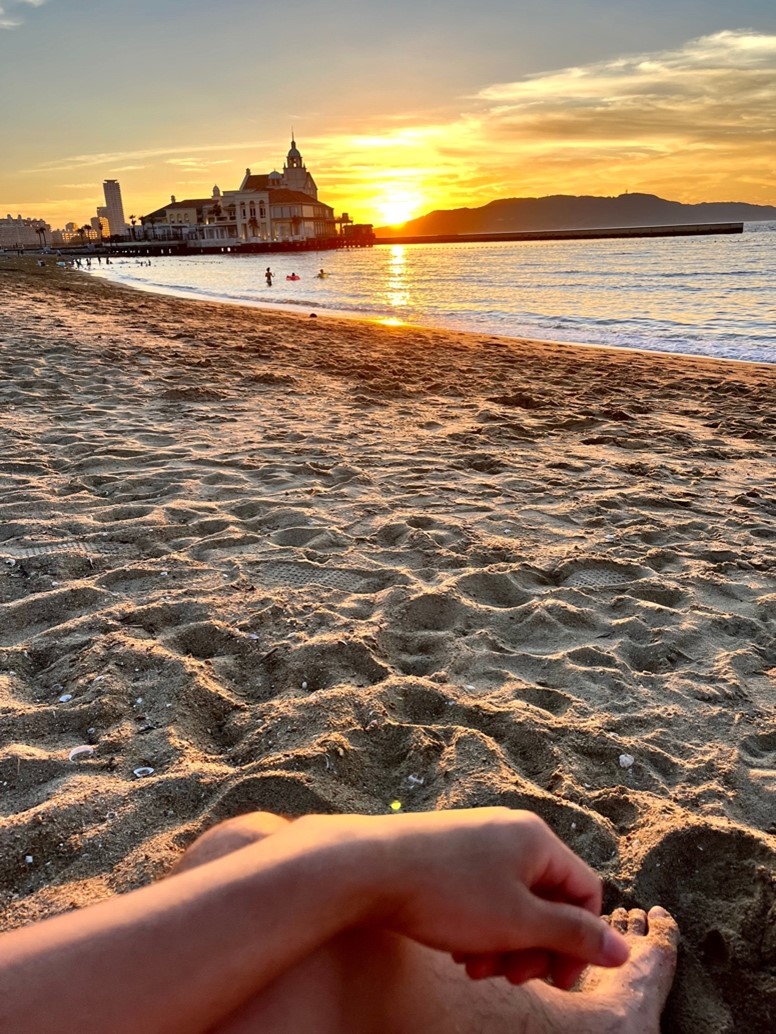
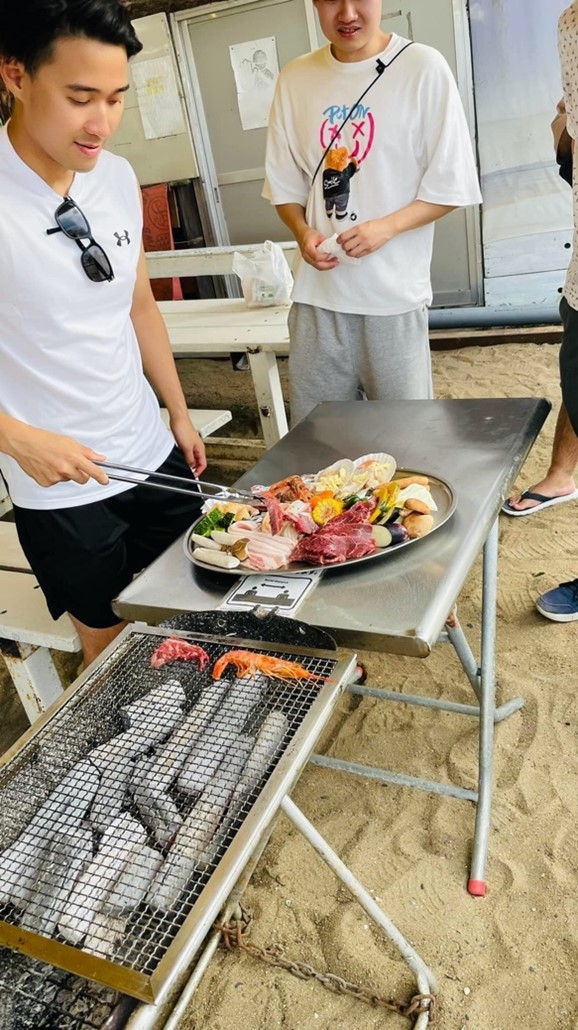
Fukuoka’s beaches: where small businesses thrive and tourists dive
Copyright © Ngo Tu Thanh 2022
In addition to beaches, Fukuoka Prefecture also offers a wide range of tourist attractions. For instance, Dazaifu Tenmangu (Dazaifu City) is a well-known shrine dedicated to the God of Education. Japanese students usually visit the shrine before exams for good fortune. Personally, I also went to Dazaifu Tenmangu in 2013 before my university entrance exam, and visited it again this time around in hope of a successful PhD graduation.
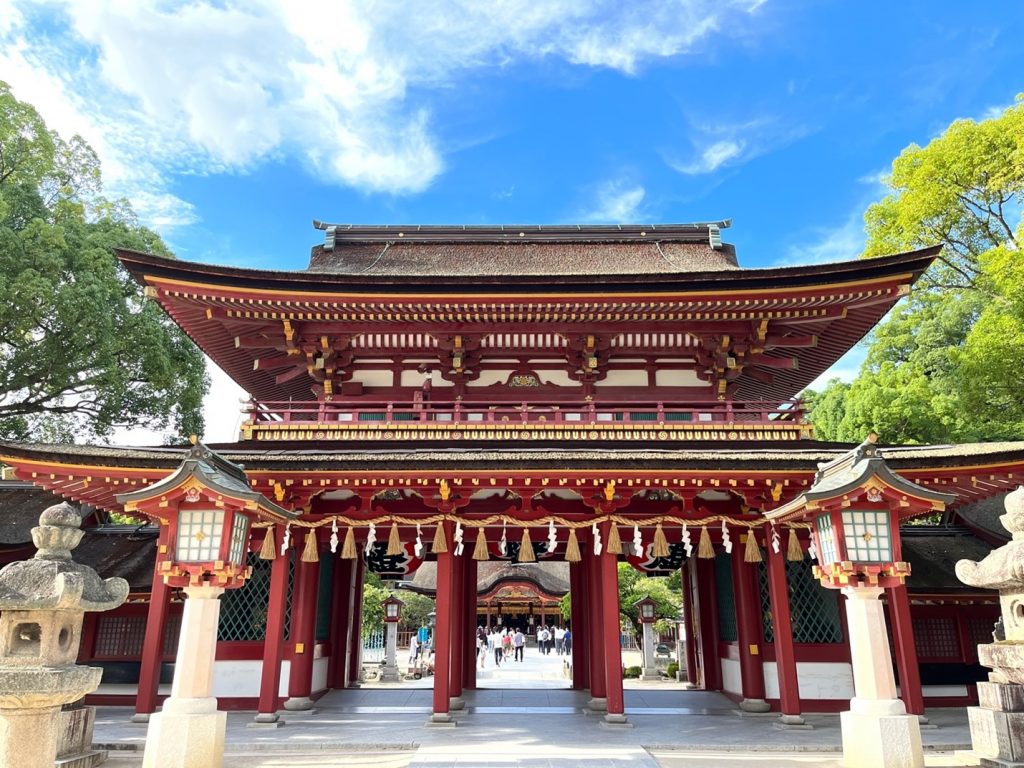
Copyright © Ngo Tu Thanh 2022
Another example is the Hakata Gion Yamakasa Festival (Fukuoka City), which is held every year during the first half of July. This festival returned for the first time since the outbreak of COVID-19 in 2020. The festival was a multi-day race between groups of men who had to run a five-kilometer course while carrying a one-ton festival float (kakiyama). Despite the extreme heat and humidity in July, visitors to the festival could feel the energy and vitality emanating from the participants. The festival did really revitalize the city!
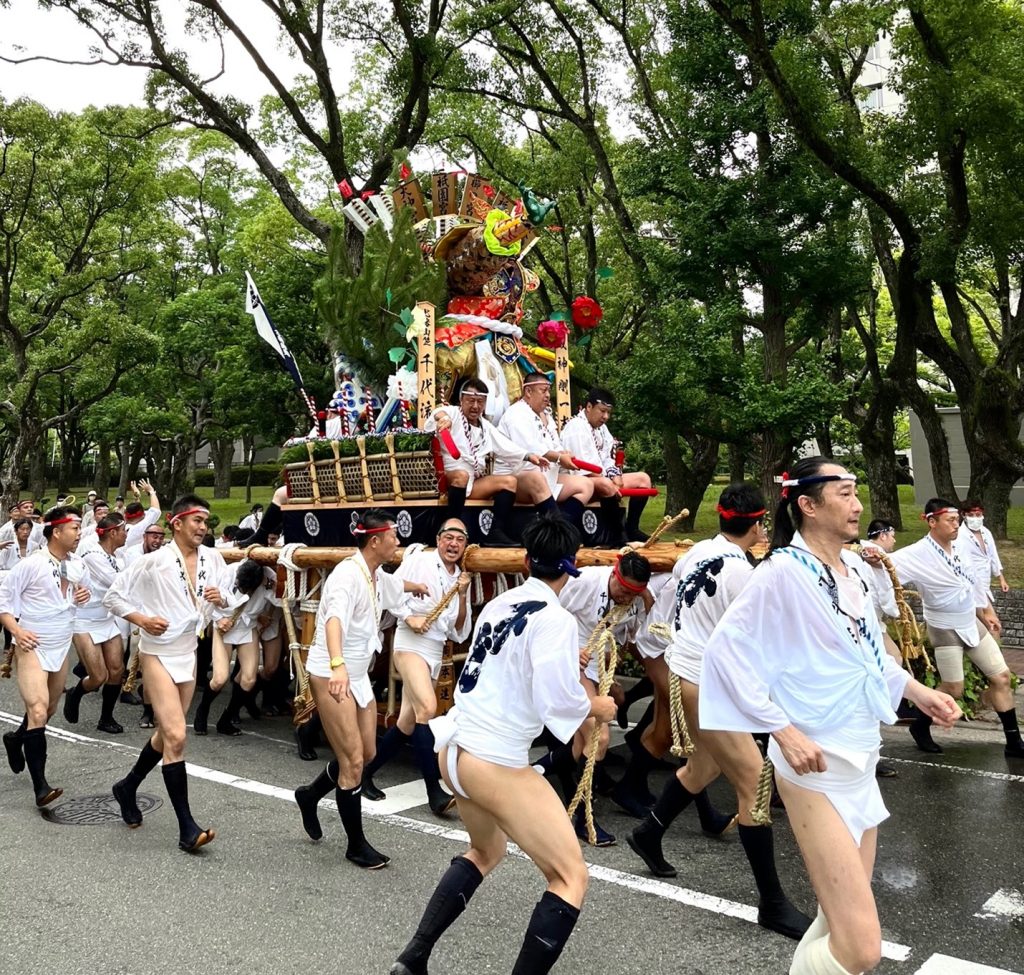
Copyright © Ngo Tu Thanh 2022
Furthermore, Fukuoka is highly famous within Japan for its various delicacies, such as Hakata ramen, chanpon, and especially seafood. Also, visiting a street food stall (yatai) is often introduced as one of Fukuoka’s must-do activities, even by locals. Gastronomy is one of the main attractions for many tourists in Fukuoka.
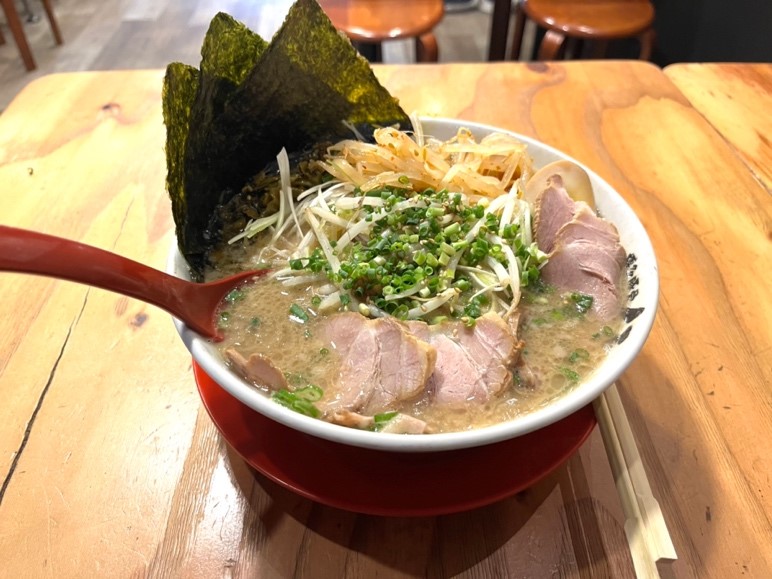
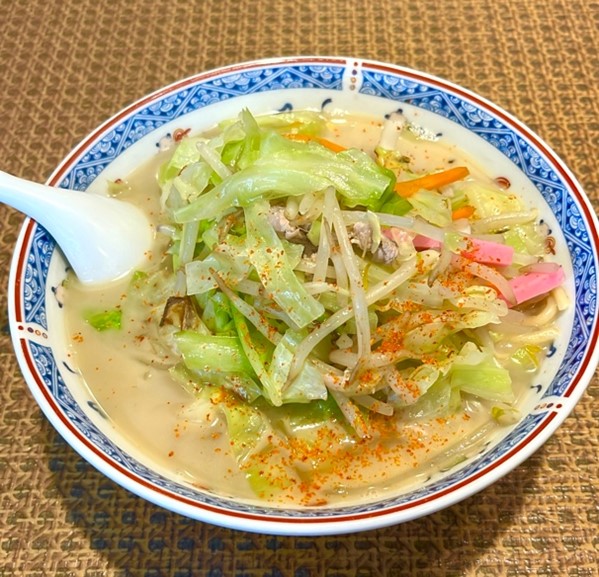
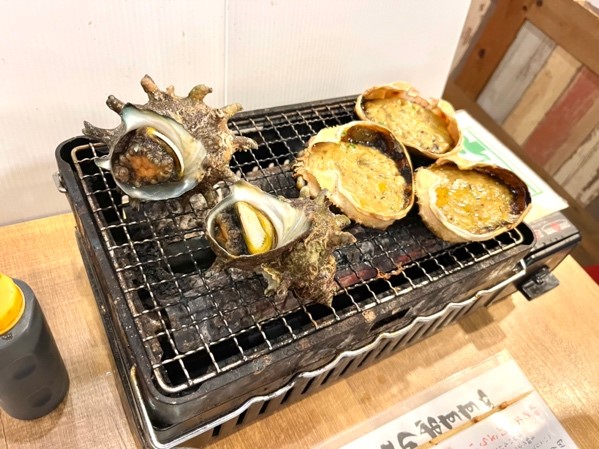
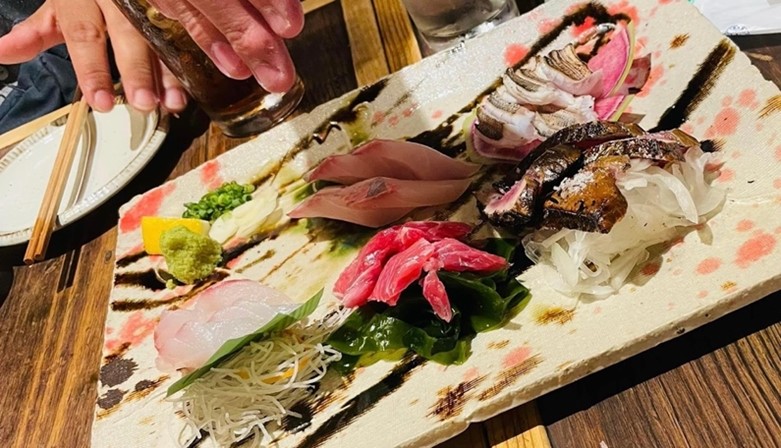
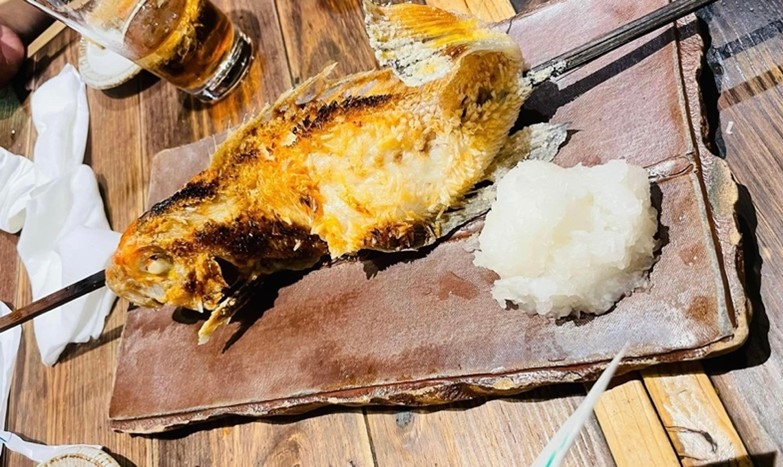
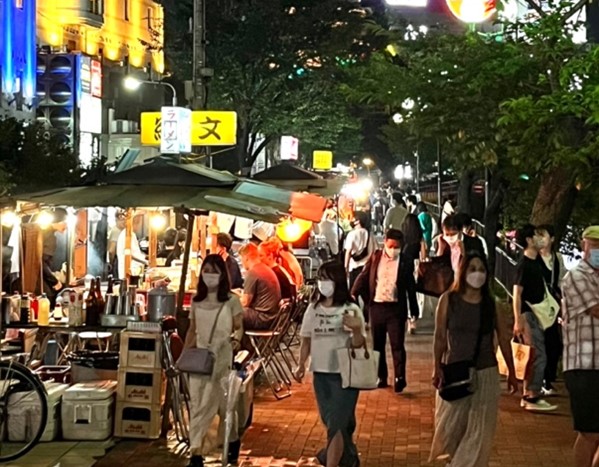
Copyright © Ngo Tu Thanh 2022
As described so far, Fukuoka Prefecture seems to have a lot of potential for tourism, and that is exactly what many of its municipalities are striving for. During my stay here, I had the opportunity to speak with a former Cabinet Office official who now works at Fukuoka City Hall. The official informed me that many places in Fukuoka Prefecture do not have large rivers necessary for factories, and therefore many communities call themselves “service towns” and focus on tourism. However, the Covid-19 pandemic has made the strategy of focusing on the service sector very risky. Therefore, it is important for municipalities in Fukuoka to diversify their strategies for regional development.
